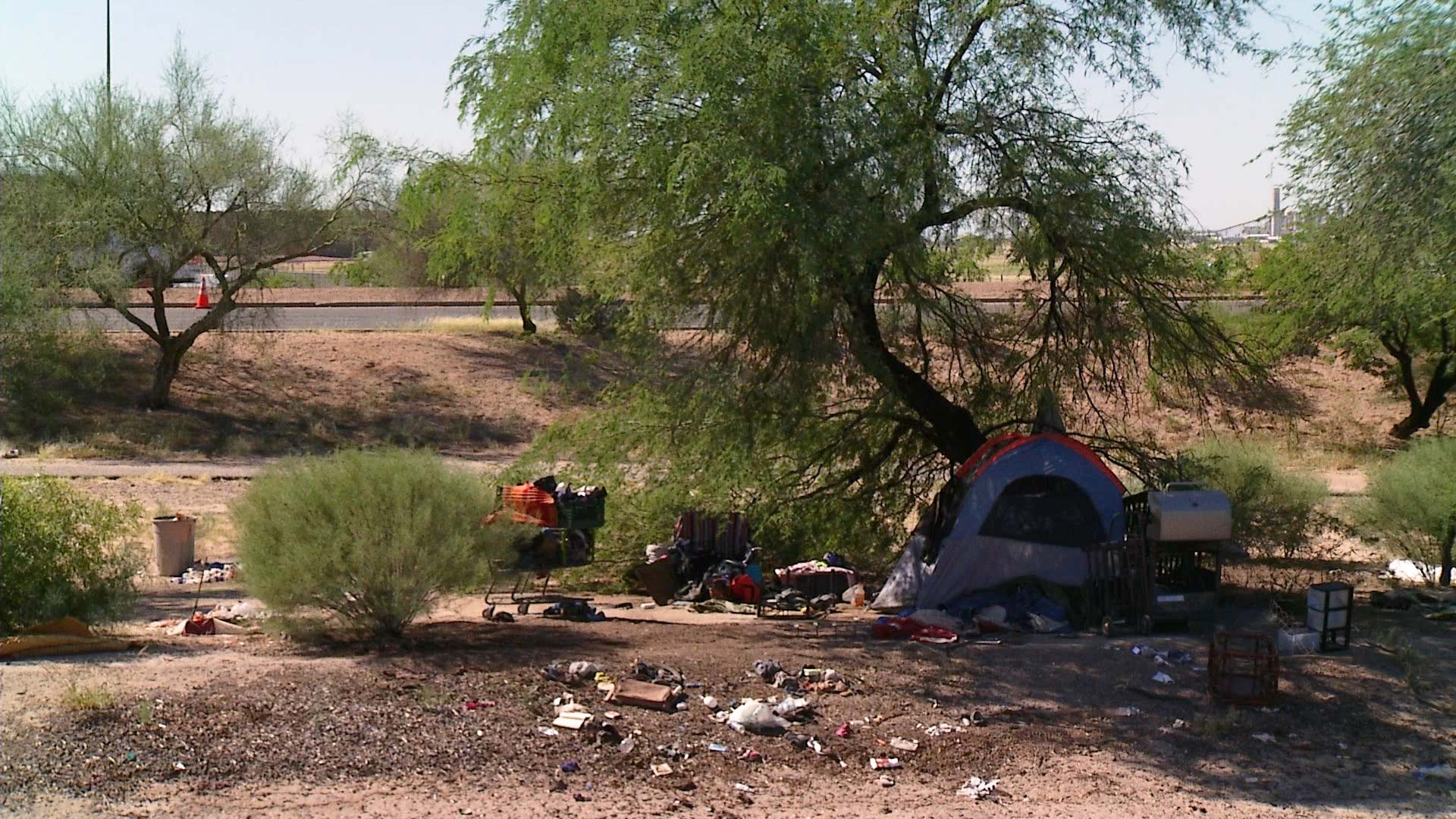 Items scattered about at a homeless encampment near Golf Links Road in Tucson.
Items scattered about at a homeless encampment near Golf Links Road in Tucson.
The Tucson City Council has approved new ordinance changes that prohibit camping in city washes and parks, adding to existing restrictions on where unhoused residents can sleep.
The changes update the city’s definition of “camping” to align with a recent U.S. Supreme Court decision that upheld similar language used in a Grants Pass, Oregon ordinance. Under the new rules, camping is broadly defined as setting up a shelter for living temporarily in public spaces.
Mayor Regina Romero acknowledged the city’s continued focus on a “housing first” approach, but said the council needed to respond to mounting concerns from residents.
“I wish we had much more money to be able to provide dignified and safe housing for everyone,” Romero said during Tuesday night’s meeting. “But we’ve got to be able to respond to what voters in the city of Tucson told us they wanted.”
While explaining her vote, Romero was repeatedly interrupted by a member of the audience. After issuing multiple warnings, she asked for the person to be removed from the council chambers.
The vote comes amid new pressure from Proposition 312, a statewide measure passed by voters in 2024. The law allows property owners to seek partial tax refunds if they believe their city or county is failing to enforce bans on public nuisances, including illegal camping, loitering, and panhandling.
The proposed ordinance first failed in March following a tied 3-3 vote. During Tuesday’s study session, Councilmember Paul Cunningham said he’s only willing to support it if the city also commits to low-barrier alternatives.
“We don’t have that low-barrier alternative for folks to camp if they need to,” Cunningham said. “We’re going to have to find some solutions for that, so I put the challenge on the rest of us—if we’re going to pass an ordinance like this, we gotta have alternatives available as well.”
Later that evening, an amendment to the proposed ordinance removed language that referenced bedding such as sleeping bags.
Councilmember Rocque Perez, who was recently appointed to fill the Ward 5 seat, said he voted to honor how his predecessor, Richard Fimbres, had intended to vote in March before technical issues prevented his vote from being recorded.
“I do feel a clear mandate from Ward 5 to support this measure,” Perez said. “Not as a rejection of unhoused individuals, but out of a belief that no one should live in a wash or park.”
City officials cited public safety concerns as a reason for the change, including the risk of flash floods and vegetation fires in desert washes, which have posed serious hazards during past monsoon seasons.
In a 5-1 vote, Councilmember Kevin Dahl was the only member to vote against the change. Ward 1’s representative, Lane Santa Cruz, was absent during the meeting.
The vote drew immediate backlash from some in the audience, who broke into protest following its passage.
Enforcement of the new ordinance will continue under the city’s Homeless Encampment Protocol, which prioritizes encampments based on risk to public health and safety and provides prior notice before clearing camps, except in emergencies.

By submitting your comments, you hereby give AZPM the right to post your comments and potentially use them in any other form of media operated by this institution.